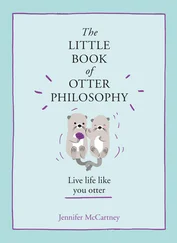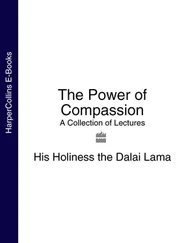Dalai Lama - The little book of Buddhism
Здесь есть возможность читать онлайн «Dalai Lama - The little book of Buddhism» весь текст электронной книги совершенно бесплатно (целиком полную версию без сокращений). В некоторых случаях можно слушать аудио, скачать через торрент в формате fb2 и присутствует краткое содержание. Жанр: Религиозная литература, на английском языке. Описание произведения, (предисловие) а так же отзывы посетителей доступны на портале библиотеки ЛибКат.
- Название:The little book of Buddhism
- Автор:
- Жанр:
- Год:неизвестен
- ISBN:нет данных
- Рейтинг книги:5 / 5. Голосов: 1
-
Избранное:Добавить в избранное
- Отзывы:
-
Ваша оценка:
- 100
- 1
- 2
- 3
- 4
- 5
The little book of Buddhism: краткое содержание, описание и аннотация
Предлагаем к чтению аннотацию, описание, краткое содержание или предисловие (зависит от того, что написал сам автор книги «The little book of Buddhism»). Если вы не нашли необходимую информацию о книге — напишите в комментариях, мы постараемся отыскать её.
These thought-provoking quotations about the importance of love and compassion, and the need for individual responsibility, fuse ancient wisdom with the awareness of the problems of everyday life.
The little book of Buddhism — читать онлайн бесплатно полную книгу (весь текст) целиком
Ниже представлен текст книги, разбитый по страницам. Система сохранения места последней прочитанной страницы, позволяет с удобством читать онлайн бесплатно книгу «The little book of Buddhism», без необходимости каждый раз заново искать на чём Вы остановились. Поставьте закладку, и сможете в любой момент перейти на страницу, на которой закончили чтение.
Интервал:
Закладка:

Dalai Lama
The little book of Buddhism
Compiled and Edited by Renuka Singh
introduction
We are the creators of our own happiness and suffering, for everything originates in the mind. So we need to take responsibility for whatever, good or bad, we experience. This book contains the essence of Buddhism and offers practical wisdom for our daily lives in the words of His Holiness the Dalai Lama. His inspiring thoughts help to improve our state of mind, and to discover deep peace within.
This chain of Buddhist thoughts consists of pithy reflections on our need to rid ourselves of the preoccupation with mundane concerns to find refuge in Buddha, Dharma and Sangha. It teaches us the law of karma, where by living according to the Ten Virtuous Actions and the Four Noble Truths we can achieve the free heart of a Bodhisattva.
Renuka Singh
The common enemy of all religious disciplines is selfishness of mind. For it is just this which causes ignorance, anger and passion, which are at the root of all the troubles of the world.
Buddha is the teacher, Dharma is the actual refuge and the Sangha is the one which assists in understanding or establishing the objects of refuge.
When we take the Buddha as an authority, as a reliable teacher, we do so on the basis of having investigated and examined his principal teaching – the Four Noble Truths.
Whenever Buddhism has taken root in a new land, there has been a certain variation in the style in which it is observed. The Buddha himself taught differently according to the place, the occasion and the situation of those who were listening to him.
All of us have a great responsibility to take the essence of Buddhism and put it into practice in our own lives.
Buddhahood is a state free of all obstructions to knowledge and disturbing emotions. It is the state in which the mind is fully evolved.
From the earliest stages of our growth, we are completely dependent upon our mother's care and it is very important for us that she express her love. If children do not receive proper affection, in later life they will often find it hard to love others.
Samsara – our conditioned existence in the perpetual cycle of habitual tendencies – and nirvana – genuine freedom from such an existence – are nothing but different manifestations of a basic continuum. So this continuity of consciousness is always present. This is the meaning of tantra.
Through actual practice in his daily life, man well fulfils the aim of all religion, whatever his denomination.
We can speak of an effect and a cause on the disturbing side as well as on the liberating side.
According to Buddhist practice, there are three states or steps. The initial stage is to reduce attachment towards life. The second stage is the elimination of desire and attachment to this samsara. Then in the third stage, self-cherishing is eliminated.
The three stages – birth, death and the intermediate state – are also established in terms of the subtlety of their levels of consciousness. Upon the basis of the continuity of the stream of consciousness is established the existence of rebirth and reincarnation.
Encountering sufferings will definitely contribute to the elevation of your spiritual practice, provided you are able to transform the calamity and misfortune into the path.
Faith dispels doubt and hesitation, it liberates you from suffering and delivers you to the city of peace and happiness.
If subconscious anger had a parallel in Buddhist writings, it would have to do with what is called mental unhappiness or dissatisfaction. This is regarded as the source of anger and hostility. We can see subconscious anger in terms of a lack of awareness, as well as an active misconstruing of reality.
Guilt is incompatible with our thinking as you are part of an action but not fully responsible for it. You are just part of the contributing factor. However, in some cases one must repent, deliberately claim responsibility, have regret and never commit the mistake again.
In the beginning of Buddhist practice, our ability to serve others is limited. The emphasis is on healing ourselves, transforming our minds and hearts. But as we continue, we become stronger and increasingly able to serve others.
Firstly, we should re-examine our own attitude towards others and constantly check ourselves to see whether we are practicing properly. Before pointing our finger at others we should point it towards ourselves. Secondly, we must be prepared to admit our faults and stand corrected.
Suffering increases your inner strength. Also, wishing for suffering makes the suffering disappear.
Even when we are helping others and are engaged in charity work, we should not regard ourselves in a very haughty way as great protectors benefitting the weak.
An area in Tibetan Buddhism which may be of interest to scientists is the relationship between the physical elements and the nerves, in particular the relationship between the elements in the brain and consciousness. This involves changes in consciousness, happy or unhappy states of mind, the effect they have on the elements within the brain, and the consequent effect that this has on the body.
According to its level of subtlety, consciousness is classified into three levels: the waking state or gross level of consciousness; the consciousness of the dream state which is more subtle; and the consciousness during sleep, dreamless sleep, which is subtler still.
The metaphor of light is a common image in all the major religious traditions. In the Buddhist context, light is particularly associated with wisdom and knowledge; darkness is associated with ignorance and a state of mis-knowledge.
In yoga tantra, the highest dimension of Buddhist practice, there is no distinction between gender. In this final life in which you attain Buddhahood, there is no difference whether you are male or female.
The creatures that inhabit this earth – be they human beings or animals – are here to contribute, each in its own particular way, to the beauty and prosperity of the world.
The Buddhist notion of attachment is not what people in the West assume. We say that the love of a mother for her only child is free of attachment.
We are born and reborn countless number of times, and it is possible that each being has been our parent at one time or another. Therefore, it is likely that all beings in this universe have familial connections.
The process of dying begins with the dissolution of the elements within the body. It has eight stages, beginning with the dissolution of the earth element, then the water, fire and wind elements. The next four stages are visions in terms of colour: appearance of a white vision, increase of the red element, black near-attainment, and finally the clear light of death.
Do your best and do it according to your own inner standard – call it conscience – not just according to society's knowledge and judgement of your deeds.
For discovering one's true inner nature, I think one should try to take some time, with quiet and relaxation, to think more inwardly and to investigate the inner world.
When one is very involved in hatred or attachment, if there is time or possibility during that very moment, just try to look inward and ask: 'What is attachment? What is the nature of anger?'
To develop genuine devotion, you must know the meaning of teachings. The main emphasis in Buddhism is to transform the mind, and this transformation depends upon meditation. In order to meditate correctly, you must have knowledge.
Читать дальшеИнтервал:
Закладка:
Похожие книги на «The little book of Buddhism»
Представляем Вашему вниманию похожие книги на «The little book of Buddhism» списком для выбора. Мы отобрали схожую по названию и смыслу литературу в надежде предоставить читателям больше вариантов отыскать новые, интересные, ещё непрочитанные произведения.
Обсуждение, отзывы о книге «The little book of Buddhism» и просто собственные мнения читателей. Оставьте ваши комментарии, напишите, что Вы думаете о произведении, его смысле или главных героях. Укажите что конкретно понравилось, а что нет, и почему Вы так считаете.












